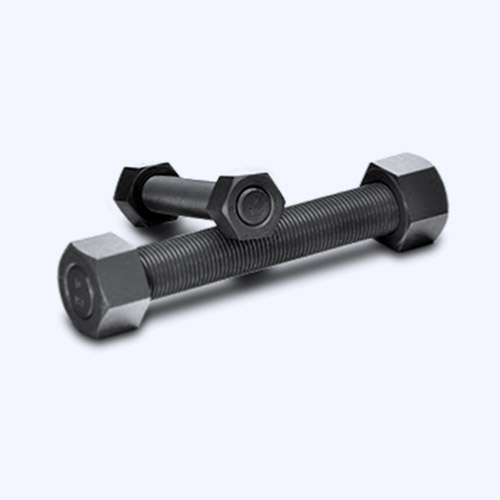дек. . 19, 2024 08:53 Back to list
using coach bolts
Using Coach Bolts A Comprehensive Guide
When it comes to construction and carpentry, choosing the right fasteners can significantly affect the integrity and durability of your projects. Among the many fasteners available, coach bolts stand out for their strength and versatility. This article delves into the properties, applications, and installation methods of coach bolts, providing you with the essential knowledge to use them effectively in your projects.
What Are Coach Bolts?
Coach bolts, also known as carriage bolts, are a type of fastener characterized by a smooth, rounded head and a square or hexagonal neck that prevents rotation during installation. Typically made from steel or stainless steel, these bolts are designed for heavy-duty applications, making them suitable for various structural and outdoor projects. Their unique design features a coarse thread that provides excellent holding power when fastened into wood or other materials.
Properties of Coach Bolts
1. Strength and Durability Coach bolts are engineered to withstand substantial loads, making them ideal for heavy timber framing and outdoor structures. Their robust construction ensures they can handle the stresses encountered in construction applications.
2. Corrosion Resistance Many coach bolts come with galvanization or other protective coatings, which enhance their resistance to rust and corrosion. This property makes them an excellent choice for outdoor use, where exposure to moisture and harsh weather conditions is a concern.
3. Ease of Use The design of coach bolts allows for easy installation with basic tools. They can be tightened using a wrench, and the square neck helps prevent slipping, providing a secure fit without the need for a nut.
4. Versatility Coach bolts are available in various lengths and diameters, accommodating different applications. Whether you’re securing wooden beams, attaching metal brackets, or building furniture, there is likely a coach bolt that will meet your needs.
Applications of Coach Bolts
Due to their robust nature, coach bolts are used in various applications, including
- Wooden Structures Coach bolts are frequently employed in constructing wooden decks, pergolas, and fences. They provide strong joints that can endure the weight and movement of outdoor elements.
using coach bolts

- Furniture Building In the world of DIY furniture construction, coach bolts can be used to create sturdy connections in tables, benches, and bookcases. Their aesthetic appeal can also be a factor, depending on the design.
- Metal to Wood Connections Coach bolts are ideal for securing metal brackets or frames to wooden structures. This makes them useful in both residential and industrial applications where metal components must be fastened to timber.
- Heavy Machinery Assembly In some specific industrial settings, coach bolts are used to assemble parts and components that require a strong and secure connection.
Installing Coach Bolts
Installing coach bolts is relatively straightforward, yet it’s essential to follow some general guidelines to ensure the best results
1. Preparation Before installation, ensure that the materials you're working with are clean and free from debris. If pre-drilling is necessary, choose a drill bit that corresponds to the diameter of the bolt's shank.
2. Drilling For wood applications, drill a hole slightly larger than the bolt’s diameter. This allows for ease of installation while ensuring a snug fit. When fastening into metal, use an appropriate drill bit for the material.
3. Insert the Bolt Place the coach bolt into the drilled hole from the underside or the desired position. The square neck should fit into the wood to prevent it from spinning when you tighten the nut.
4. Tightening Using a wrench, tighten the nut onto the exposed shank of the bolt. It's advisable to apply uniform pressure to avoid warping or cracking the material you're fastening.
5. Final Check Once all bolts are tightened, it’s good practice to inspect the assembly to ensure everything is secure and aligned properly.
Conclusion
Coach bolts are an invaluable asset in any builder’s toolkit, providing strength, durability, and versatility across a wide range of applications. Understanding their properties, applications, and how to install them effectively can enhance the quality of your projects. Whether you’re constructing a deck, building furniture, or assembling industrial machinery, using coach bolts will ensure that your structures are both secure and long-lasting. By following outlined installation practices, you can confidently incorporate coach bolts into your next construction endeavor.


